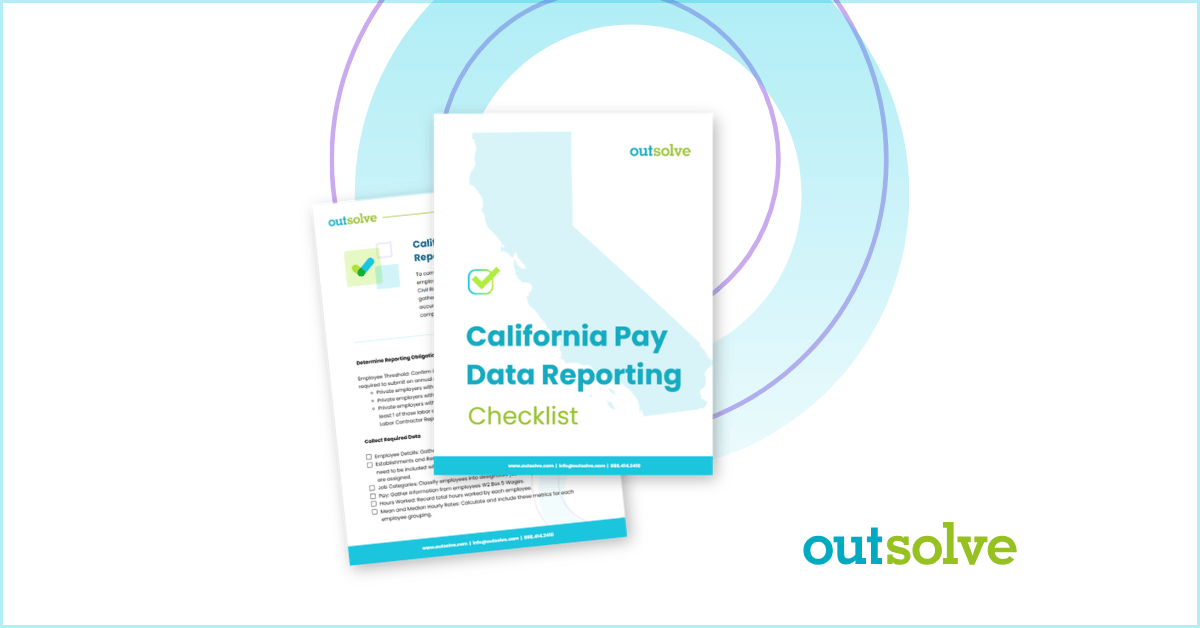
If you’re working in HR, chances are you’ve been hearing a lot about recent pay transparency laws, and Massachusetts is the latest state to make a move in this area. The Massachusetts Pay Transparency Law takes effect October 29, 2025 and it’s important to start preparing now.
Let’s face it, staying on top of new regulations like this can be a challenge, especially with so many moving parts to consider. Not to mention all the other work you have to do in your daily HR role. At the end of the day, it's really about a chance for employers to build strong and transparent relationships with employees while creating a workplace with trust and fairness when it comes to compensation.
If you’re not sure what needs to change in your HR processes, don’t worry! In this guide, we’re going to break down the key aspects of the Massachusetts Pay Transparency Law, explain what it means for you and your team, and give you practical tips on how to stay ahead of the game.
Here’s three key takeaways you’ll learn in this article:
- The key provisions of MA’s pay transparency law requiring you to review and revise some of your HR processes.
- How this law affects talent acquisition, job postings, communication of salary information, and recordkeeping – and penalties for non-compliance.
- Additional tips and action items for HR that support compliance with this law.
Why Pay Transparency Matters
First off, let’s take a moment to understand why this law matters so much, not just from a legal standpoint, but from a cultural one. For years, pay gaps, whether gender-based, racial, or otherwise, have been an issue. Employees often felt that their compensation was either unfairly determined or simply unclear, and candidates also struggled with knowing whether a role would meet their salary expectations before stepping into an interview or even applying for a job.
Massachusetts is part of a growing number of states addressing this with pay transparency laws. The goal is simple: to create a more equitable and open approach to how companies talk about money. When people have clear insight into what they could earn at a company, they feel more confident in their decisions about applying, negotiating, and accepting job offers. For employees, it’s about knowing they’re being paid fairly. For employers, it’s about attracting and retaining top talent and showing that you’re committed to both transparency and equity in your workplace.
If you are a multi-state employers, download our State Pay Transparency Law Guide today to ensure compliance with each state's requirements.
What Does the Massachusetts Pay Transparency Law Require?
The Massachusetts Pay Transparency Act officially goes into effect October 29, 2025. If you’re hiring in Massachusetts and have 25 or more employees, or if you’re recruiting for positions that could be filled by someone in the state, there are a few key things you need to know.
Key Requirements for Employers
- Salary Range Disclosure in Job Postings: This is one of the biggest changes. Starting January 1, 2025, every job posting you put up must include a salary range for the role. This applies whether you're posting jobs on your company website, job boards, or even LinkedIn. The idea here is simple: You want to be upfront with potential candidates about what they can expect in terms of compensation so no one’s time is wasted if the role isn’t paying what the candidate needs.
Think about it—how many times have you had a candidate ask, “What’s the salary for this position?” Or maybe you’ve had the experience of making a job offer, only for the candidate to turn it down because the salary didn’t meet their expectations. This law aims to prevent those awkward situations by being transparent right from the start. This way, candidates can make more informed decisions before even submitting their applications. - Salary Information Upon Request: If a candidate asks for the salary range during the hiring process, you’ll now be required to provide it. This includes any time during the hiring process or even after an offer has been made. While this might seem like a small change, it’s a big shift in terms of transparency and ensuring candidates have the info they need to make decisions about whether they want to continue with the process.
- No More Asking About Salary History: Here’s a change that’s been a long time coming. Employers are no longer allowed to ask candidates about their previous salary history during the interview process. This is particularly important because asking about past pay often perpetuates existing pay gaps by carrying over lower salaries from previous roles.
Instead, Massachusetts’ new law directs employers to focus on the role at hand and the value the candidate brings to it. This change makes sure that candidates are compensated fairly based on their skills, experience, and the position they're applying for—not based on what they made before. - Recordkeeping and Documentation: Another important part of this law is the requirement to keep detailed records of salary ranges for each position within your organization. These records need to be maintained for at least three years in case the state comes asking for them. If there’s an audit or a complaint, you’ll need to provide proof that you’ve been following the law and maintaining fair pay practices.
This is a good time to think about your record-keeping processes. Are they organized? Do you have everything in place to track salary ranges and ensure you're consistently following the law?
Employee Rights Under the Law
Both current and prospective employees now have a few important rights under this law. First, they can ask about salary ranges and should receive that information. Second, employees are protected from retaliation for asking for salary information. This means they can’t be penalized in any way for seeking pay transparency, whether it’s during the interview process or after they’ve joined the company.
These changes give employees more control over their career decisions and create an environment where pay decisions are made with greater fairness and visibility.
Penalties for Non-Compliance
So, what happens if your company doesn’t comply? There are penalties for failing to adhere to the Massachusetts Pay Transparency Act. The state could impose fines of up to $1,000 per violation, which could add up quickly if your company doesn’t get in line. Additionally, multiple violations could result in larger penalties. The Attorney General’s office is responsible for enforcing these regulations.
But penalties aren’t just about the financial consequences. Non-compliance could also harm your company’s reputation. Bad reputations can spread quickly. Job seekers today value transparency and failing to disclose salary ranges or asking about salary history can deter top talent from considering your organization. Simply put, complying with this law will make your company more attractive to candidates, which can pay off in the long run.
How HR Should Prepare for MA Pay Transparency
Now that we know what the law requires, let’s talk about what you can do to make sure your company is fully prepared.
- Update Job Postings: This should be your first step. Go through all your job postings and make sure they include a salary range. This applies to all positions—whether they’re for full-time employees, contractors, or temporary staff. It’s a good idea to standardize the process for posting jobs and to have a template to ensure consistency and compliance across the board.
- Audit Your Compensation Practices: This law is an excellent opportunity to take a fresh look at your compensation practices. Are your pay structures aligned with industry standards? Do you have any compensation disparities between similar roles? A pay equity audit can help you identify any gaps and proactively address them before they become a bigger issue.
- Train Your Hiring Managers: Your hiring managers are key to making this law work. Make sure they understand the new rules, especially the part about not asking about salary history and how to respond to salary inquiries. This training will help prevent any missteps and ensure that everyone is on the same page.
- Keep Accurate Records: Set up a system for maintaining salary records for each role in your organization. This will make it easier to prove compliance if the state requests it. Accurate recordkeeping will save you time, effort, and stress if you’re ever audited.
What the Massachusetts Pay Transparency Law Means for Your Organization
The Massachusetts Pay Transparency Law is a big step toward building a more equitable and transparent workplace, and while compliance requires some adjustments, the changes will help your company in the long run. It’s an opportunity to build trust with your employees, attract top talent, and demonstrate that your organization values fairness and transparency.
By taking proactive steps like updating your job postings, auditing your compensation structures, training your team, and keeping thorough records, you’ll be well on your way to ensuring compliance and creating a better work environment for everyone.
Need help navigating the Massachusetts Pay Transparency Law or understanding how it fits into your broader compliance strategy? Don’t hesitate to reach out to our compensation experts at OutSolve. We’re here to support you every step of the way and can guide you through the intricacies of pay transparency laws, salary benchmarking, and more.
Also, be sure to check out our Ultimate Guide to State Pay Transparency Laws for more insights into how different states are handling this issue. Let’s make sure your company is ahead of the curve, no matter where you operate. Join our HR community on Slack, HR Gumbo City, to stay updated on all new pay transparency laws and learn best practices for your processes.
Sarah Jane Hannan plays a vital role in leading compensation projects at OutSolve, where her ability to work efficiently and collaboratively with clients ensures the successful execution of complex initiatives. She brings expertise in external market benchmarking and supports the design and interpretation of Multiple Linear Regression analyses, translating complex data into actionable recommendations. Sarah Jane is an expert in state pay transparency laws and provides guidance to companies nationwide on how to remain compliant with the requirements. She is also the product manager for compensation consulting services at OutSolve, helping to develop new products and make adjustments to existing products as laws change and evolve. Her background in Non-Discrimination in Employment, EEO-1 reporting, and VETS-4212 reporting strengthens her understanding of compliance and workforce equity. With a B.S. in Psychology from Northwestern State University and an M.S. in Industrial/Organizational Psychology from Southeastern Louisiana University, Sarah Jane applies analytical rigor and organizational insight to help clients build fair, defensible, and competitive compensation programs.
Weekly OutLook
Featured Posts

5 Key Compliance Items HR Can’t Afford to Ignore

HR Compliance Checklist: What Every HR Pro Needs to Know
Related Posts
.png)
Beat the Rush: Outsource Federal Reporting Requirements in Q1
The beginning of the year usually feels like a fresh start that brings new business initiatives, goals, and strategies. The work you do between...

California Pay Data Report Checklist for HR Professionals
With changes regarding California pay data reporting taking effect in 2026 and 2027, this is the checklist you need to stay confident that you've got...

What You Need to Know About the Rhode Island Pay Transparency Law
Pay transparency continues to gain traction at the state level, and Rhode Island is no exception. Let’s dive into the details of how this law works...
 Sarah Jane Hannan
Sarah Jane Hannan


